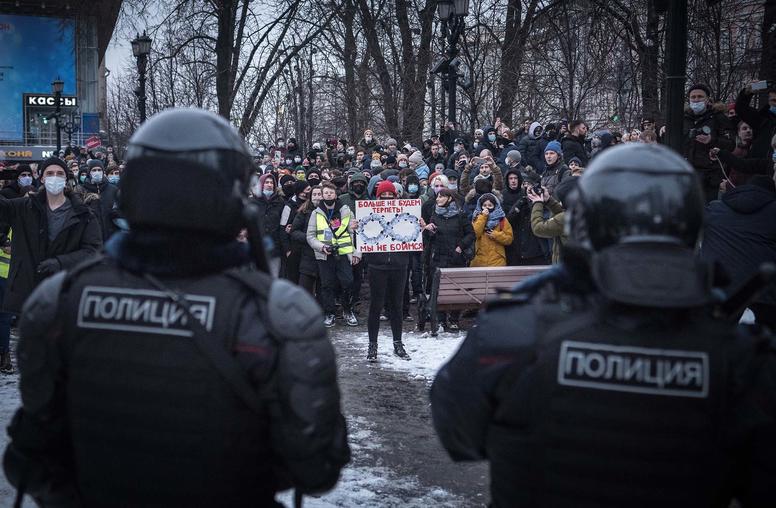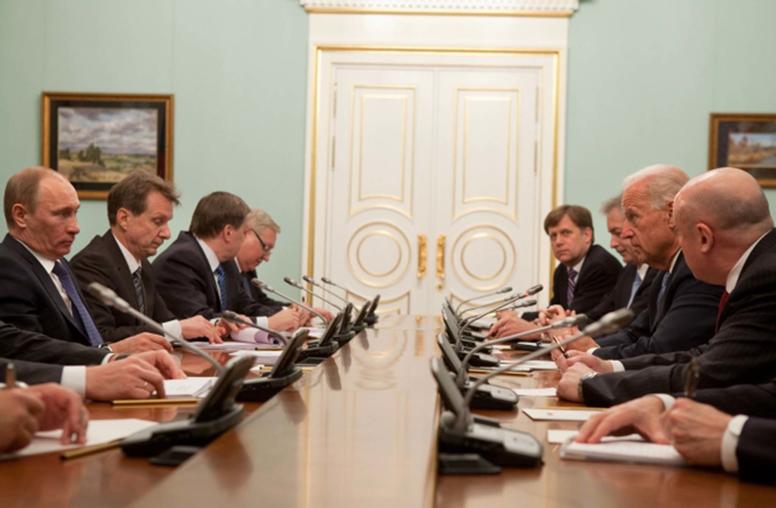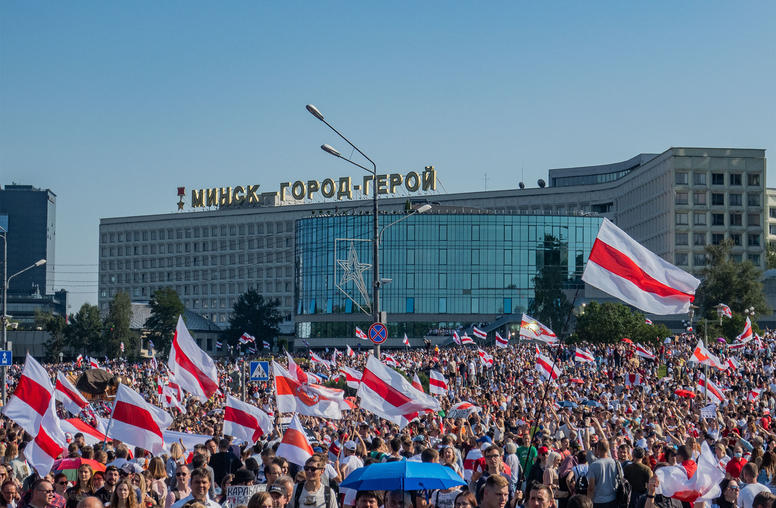Question And Answer
Publications
Articles, publications, books, tools and multimedia features from the U.S. Institute of Peace provide the latest news, analysis, research findings, practitioner guides and reports, all related to the conflict zones and issues that are at the center of the Institute’s work to prevent and reduce violent conflict.

Donald Jensen on the Latest from Russia’s War in Ukraine
For the first time in 20 years, USIP's Donald Jensen says we've seen cracks in Russian elites' allegiance to Putin: "While they're still amorphous and not very organized, they're clearly unhappy." And if the war drags on and losses mount, "Putin has a big, long-term problem on his hands."

Donald Jensen on the 30th Anniversary of the Soviet Union’s Fall
Three decades after President Mikhail Gorbachev resigned, beginning the dissolution of the Soviet Union, USIP’s Donald Jensen says, “The collapse is still continuing. It didn’t fall apart at once … and in many ways [it] shapes our relationship with Eastern Europe and Russia today.”

Donald Jensen on Secretary Austin’s Visit to Georgia, Romania and Ukraine
USIP’s Donald Jensen looks at what Defense Secretary Lloyd Austin’s recent trip to several countries along the Black Sea means for U.S. policy, saying, “We are looking at the region in its entirety … and Romania, Ukraine and Georgia are key players in the broader effort to curb Russian influence in the region.”

Donald Jensen on Ukrainian President Zelensky’s Visit to the U.S.
Ahead of Ukrainian President Volodymyr Zelensky’s long-awaited visit to Washington, USIP’s Donald Jensen says many in D.C. “see the [Ukrainian] fight against corruption as a key benchmark” in determining the future of U.S. assistance, including for Ukraine’s ongoing conflict with Russia.

Donald Jensen on the Biden-Putin Summit
Despite numerous points of tension, Presidents Biden and Putin characterized this week’s meeting in positive terms. Now, “the administration is trying to decide to what extent to cooperate with the Kremlin … and to what extent to push back,” said USIP’s Donald Jensen ahead of the summit.

From Navalny to the Economy, Russia Protests Reveal Mass Dissatisfaction
Russia was rocked by demonstrations over the weekend, as thousands braved freezing temperatures to protest the detention of dissident Alexei Navalny. The opposition leader had just returned to Russia after recovering from a poisoning attack, suspected to undertaken by the Kremlin. But Russians’ grievances go well beyond the treatment of Navalny. Corruption, a foundering economy, and dissatisfaction with the ruling elite threaten to propel the protests into a broader movement against President Vladimir Putin’s regime. The Kremlin has alleged that the protests are a Western plot to destabilize Russia. USIP’s Donald Jensen looks at the underlying factors driving the protests, what threat they pose to Putin’s regime, and what, if any, role the United States can play.

Nuclear Diplomacy with Russia: What’s Ahead for the Biden Administration?
With relations between the United States and Russia at a low point, the incoming Biden Administration faces the challenge of finding the right balance between showing firmness toward the Kremlin and engaging on issues of mutual interest, above all arms control. President-elect Joe Biden has indicated he may agree to extend the New Strategic Arms Reduction Treaty (New START) for five years, a decision that could clear the way for further negotiations. But while extension of New START could lead to discussions on other areas of arms control, the potential for breakthroughs in the U.S.-Russia relationship appears dim.

As Russia Bars Democracy in Belarus, Risks Will Rise
As people in Belarus continue massive protests against an autocratic ruler and a rigged election, risks are rising that Russia’s military could take a direct role, less visible than an overt invasion, projecting power westward toward NATO and threatening Ukraine from the north. The dramatic images of this prodemocracy movement resemble those from neighboring Ukraine, yet one difference is critical. The Belarus uprising seeks no sharp break from Russia or turn toward the European Union or NATO. So effective policies to advance Belarusians’ democratic hopes should work for the long term.

Don Jensen on Protests in Belarus and Russia’s Response
After an “obviously crooked election” in Belarus sparked massive protests, USIP’s Don Jensen says Russia is quietly using the situation to assert influence. If Moscow’s military presence in Belarus increases, “I think you’re going to see a much more forward projection of Russian power against NATO,” he said.